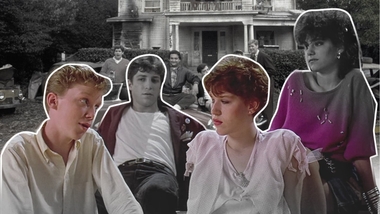Taking another look at pop culture's "Animal House" era, as Kavanaugh hearings unfold

"Animal House's" recent 40th anniversary was an occasion for nostalgia, but also a referendum on the problematic aspects of the sex-and-drug comedies of that era when viewed through a modern prism. As USA Today asked in one analytical piece, "In the era of #MeToo, is it still OK to laugh at 'Animal House'?"
That period has come into focus again, unexpectedly, in the confirmation hearings regarding Supreme Court nominee Brett Kavanaugh, who has been accused of sexual assault while a high-school student -- and in a separate act of misconduct by a college classmate -- during the early 1980s. (Kavanaugh has repeatedly denied the allegations.)
Movies, obviously, hold up a bent mirror to society, and are often funny precisely because they exaggerate attitudes and situations. But the popular culture of the period does reflect shifting standards, and tolerance for a kind of humor -- not only about sex, but also issues such as race -- that was much different, when young guys were reading the National Lampoon and flocking to see equally risqué fare like "Kentucky Fried Movie" and "The Groove Tube."
Of course, movies about teenage boys losing their virginity as a rite of passage both predates those years and lingered long after it. "The Summer of '42," a comedy-drama released in 1971, focused heavily on a pair of boys determined to have sex during World War II (before taking a more serious turn), while the "American Pie" series -- which dealt with the same general theme much more broadly -- kicked off in 1999.
In between, there were movies like "Animal House," in which, among other things, a college freshman plays out the pros and cons of having sex with a drunk-to-the-point-of-unconscious girl; and popular comedies like "Porky's" (with its voyeuristic shower scene), "Fast Times at Ridgemont High" and "Sixteen Candles."
In the last film, one of a string of hit comedies directed by John Hughes, a teenage nerd impresses his friends by presenting a pair of a classmate's panties.
The extent to which women were fully realized characters in these movies -- as opposed to just being the objects of fixation and fantasy -- tended to vary, but in most instances these stories unfolded largely from a male perspective. A prime example would be "Weird Science" -- another Hughes film, from 1985 -- in which a couple of dweeby kids literally create an idealized woman (played by model Kelly LeBrock) in a lab.
Television exhibited a similar naughty streak during these years, with sitcoms like "Bosom Buddies" and "Three's Company," where young men ogling women -- while pretending to be women and gay, respectively -- was baked into the premise.
The tenuous relationship here to the Kavanaugh story is simply to consider the way the cultural environment has evolved, perhaps especially in the last few years. Re-watching movies years later has surely compelled some middle-aged parents to squirm uncomfortably when introducing their kids to old pastimes that haven't necessarily aged well.
There is and was, clearly, a vast gap between the entertainment that people consume and the way they actually behave. That said, there were also Reagan-era toga parties and drinking games inspired by what people saw on the screen, where characters being drunk or stoned was often a source of hilarity.
The issue of looking backward isn't strictly academic, coming as it does amid a wave of movie and TV revivals, drawing upon the equity in nostalgia. Yet for those who like to view the '70s and '80s as a simpler time, it's a reminder that not everything from those years translates into a modern setting, in what was, in key respects, a less enlightened one.
By Brian Lowry, CNN. The-CNN-Wire™ & © 2018 Cable News Network, Inc., a Time Warner Company. All rights reserved.
The Gayly – September 26, 2018 @ 3 p.m. CDT.





